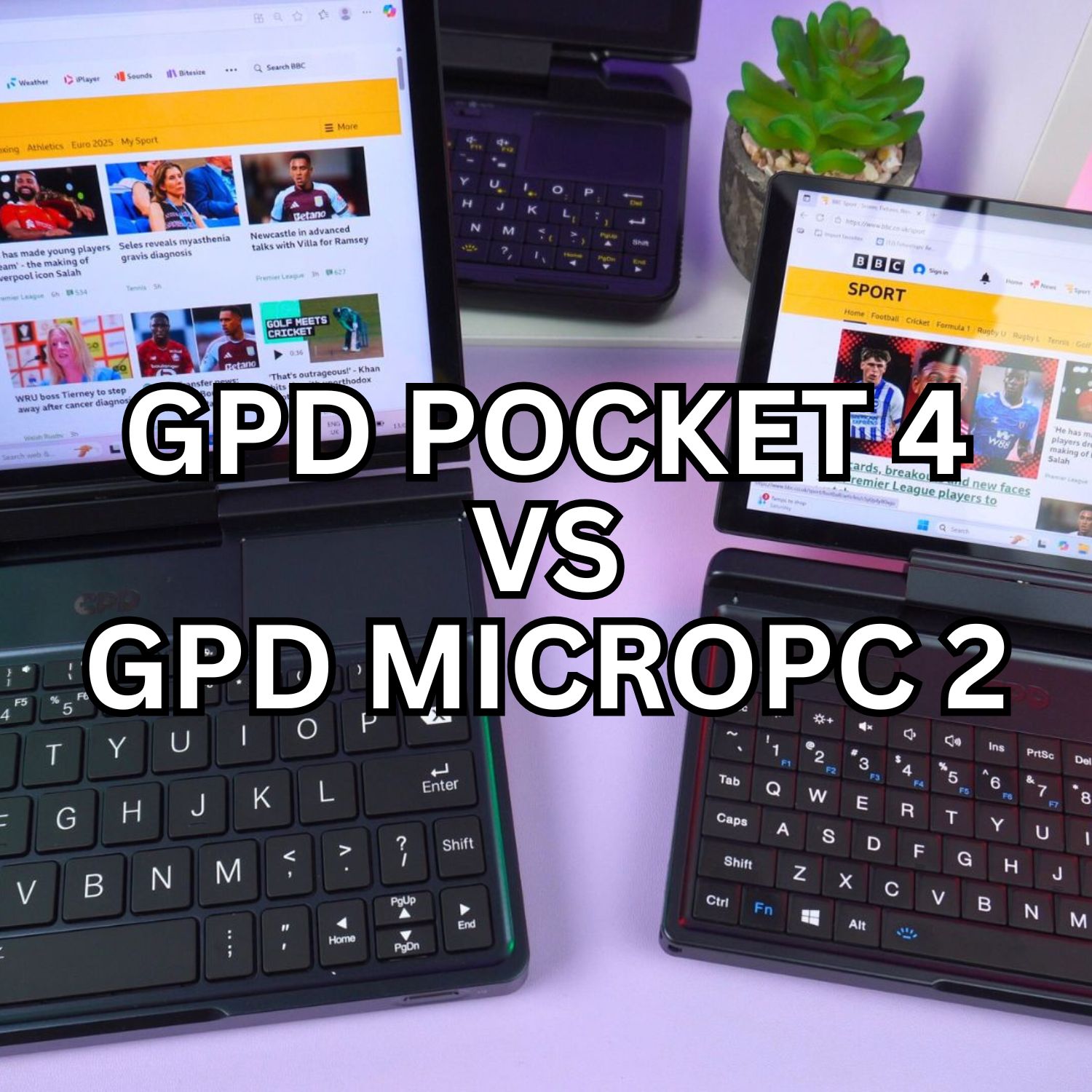
GPD MicroPC 2 vs GPD Pocket 4 : le dilemme du professionnel
In the thriving UMPC market, GPD presents professionals with a fascinating choice between two exceptional 2-in-1 convertible devices: the GPD MicroPC 2 and the GPD Pocket 4. Both offer the versatility of transforming from a GPD mini laptop to a tablet, but they are born from entirely different design philosophies and cater to different performance needs and budgets. This makes the decision more nuanced than ever.
Notre analyse détaillée du GPD MicroPC 2 vs GPD Pocket 4 est là pour décortiquer ces différences et vous aider à trouver votre outil professionnel idéal.
La philosophie dans la forme : Utilitaire vs. exécutif
The core identity of each device is evident in its construction. The GPD MicroPC 2 is built for resilience, with a high-impact ABS synthetic resin chassis designed to endure the challenges of on-site work. The GPD Pocket 4, conversely, is milled from premium CNC aluminum, presenting a sleek, polished aesthetic fit for an executive suite.
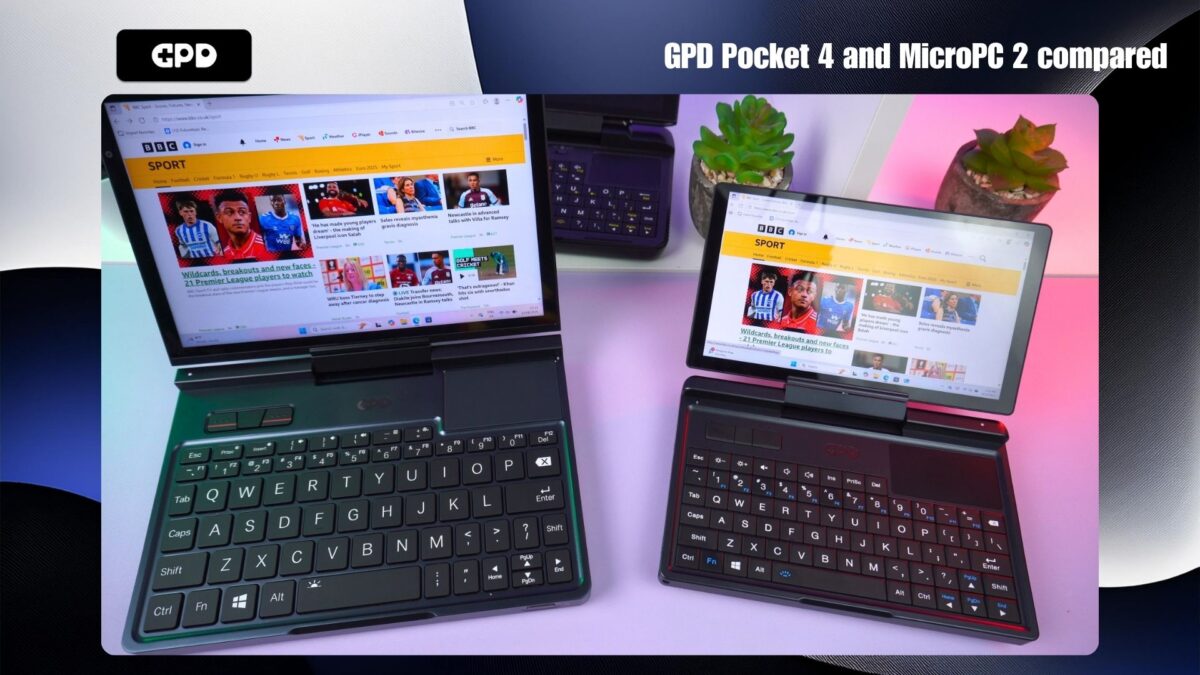
Bien qu’ils partagent tous deux une charnière innovante à 180 degrés pour une fonctionnalité de tablette, leurs formes physiques racontent l’histoire des environnements auxquels ils sont destinés. Tous deux sont des ordinateurs portables compacts conçus de main de maître, mais votre choix commence par la priorité donnée à l’utilité robuste ou à la finition haut de gamme.
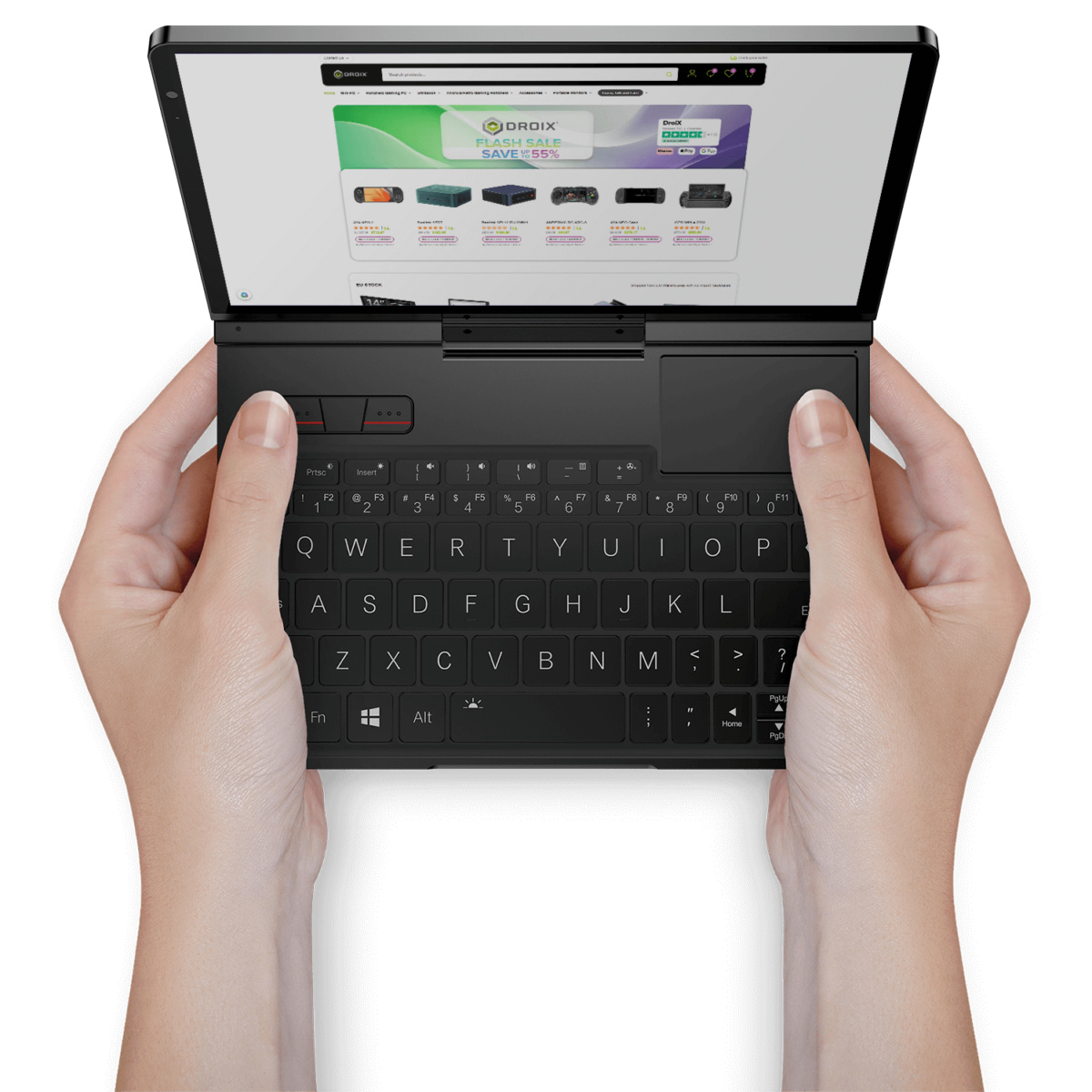
GPD Pocket 4 Mini Laptop
Un spectre de puissance et de prix
The starting price of each device, $570.95 for the GPD MicroPC 2 and $865.95 for the GPD Pocket 4, is the clearest indicator of the wide performance spectrum they cover.
- Le cheval de bataille efficace (MicroPC 2) : Doté de processeurs Intel de la série N(N250/N300), cet appareil est optimisé pour l’efficacité et la fiabilité des diagnostics, des tâches administratives et de la productivité quotidienne.
- L’ordinateur de direction haute performance (Pocket 4 Base) : Avec son processeur AMD Ryzen 7 8840U (8 cœurs/16 fils), il entre dans le domaine des ordinateurs portables haut de gamme pour les entreprises, gérant facilement le multitâche intensif et le travail créatif.
- La puissance de pointe (Pocket 4 Top-Tier) : Le CPU optionnel AMD Ryzen AI 9 HX 370 (12 cœurs/24 threads) avec son NPU de nouvelle génération est destiné aux développeurs et aux pionniers de l’IA qui ont besoin d’une puissance de bureau en déplacement.
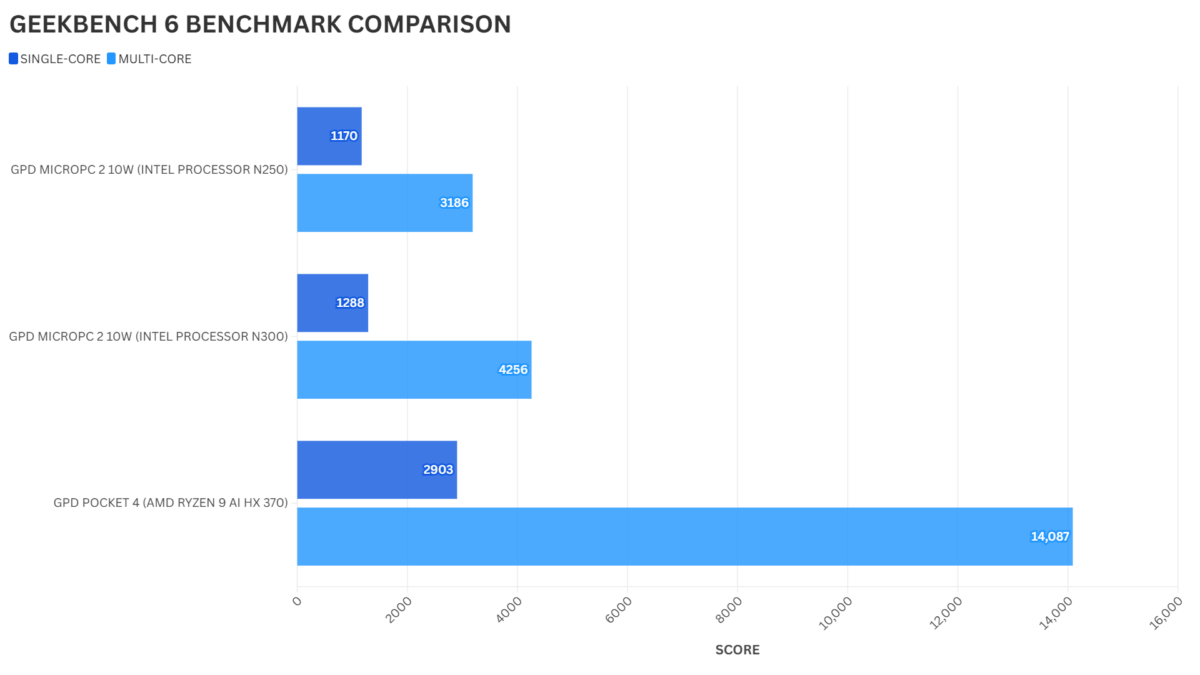
Interaction et immersion
When it comes to user interaction, the GPD Pocket 4 boasts a world-class display. Its 8.8-inch LTPS touchscreen is larger, sharper at a 2560×1600 resolution, and incredibly fluid with a 144Hz refresh rate. In contrast, the GPD MicroPC 2 7-inch LTPS 1080p 60Hz screen is highly practical and capable, but the Pocket 4’s panel is simply on another level.
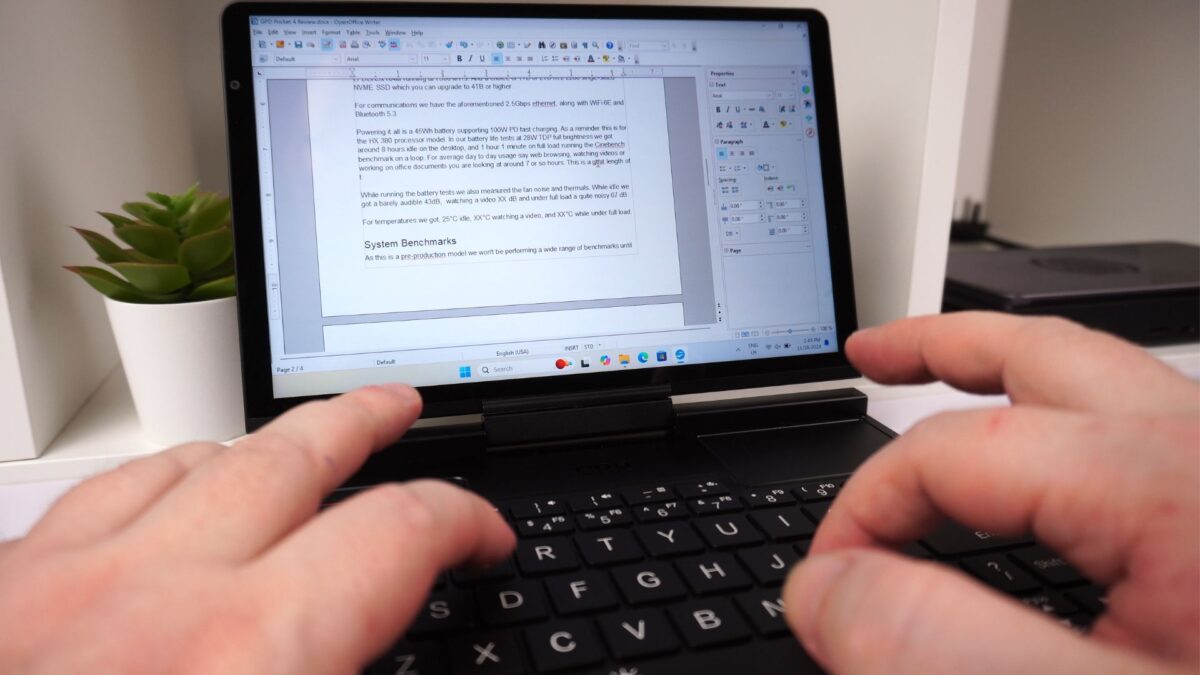
Les deux appareils partagent une configuration d’entrée similaire : un clavier rétroéclairé, trois boutons de souris et un pavé tactile, mais la plus grande taille du Pocket 4 offre une expérience de frappe plus confortable, ce qui en fait l’un des meilleurs ordinateurs portables pour les étudiants qui écrivent souvent des essais.
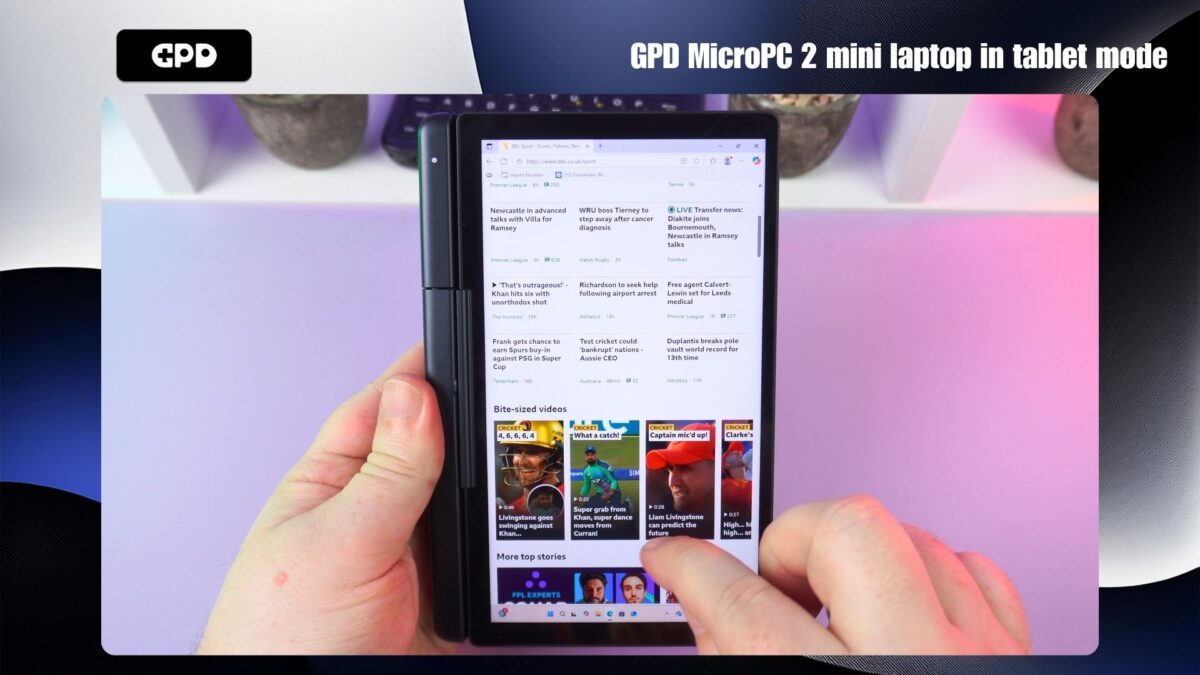
Connexions : Intégré ou sur mesure
The central question in the GPD MicroPC 2 vs GPD Pocket 4 debate is their approach to connectivity. The GPD MicroPC 2 champions “built-in readiness.” It has a comprehensive suite of integrated ports, including a 2.5Gbps Ethernet port, ensuring you are always prepared for any standard connection scenario out of the box.
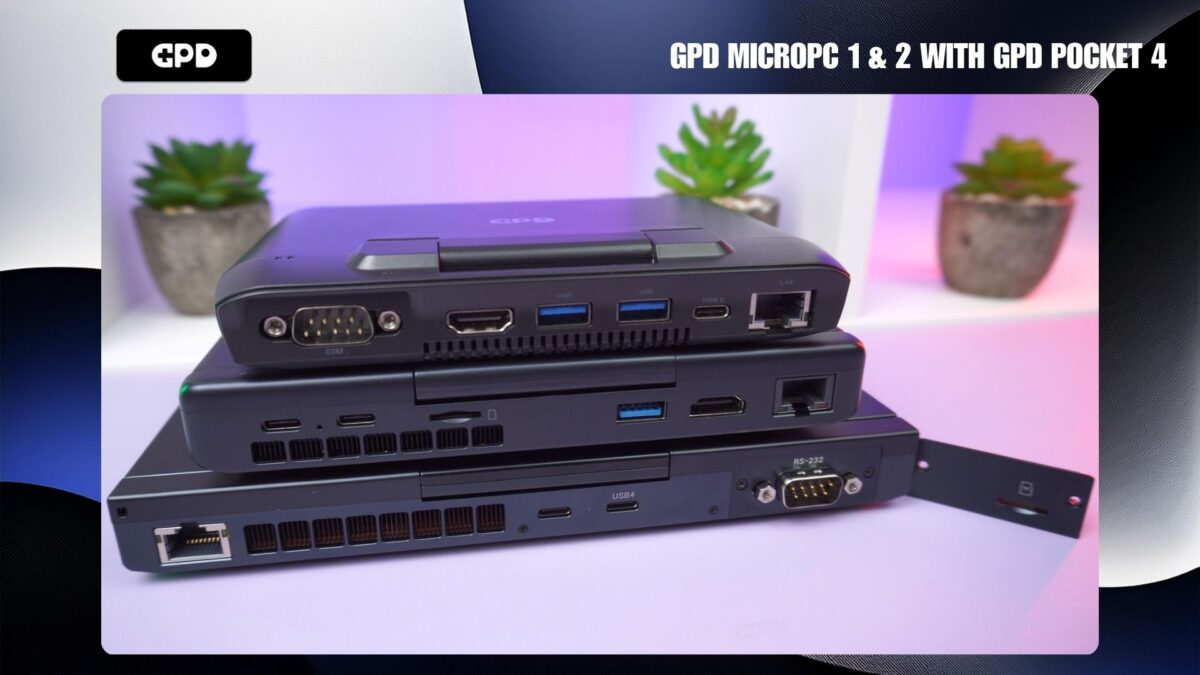
The GPD Pocket 4 champions “bespoke flexibility.” It has a powerful set of fixed ports, including a high-speed USB4 port that supports eGPU connectivity for graphics-intensive tasks. Its unique advantage is the modular port system, allowing users to swap in specialized tools like a 4G LTE module, RS-232 module or a KVM module, tailoring the device for a specific mission.
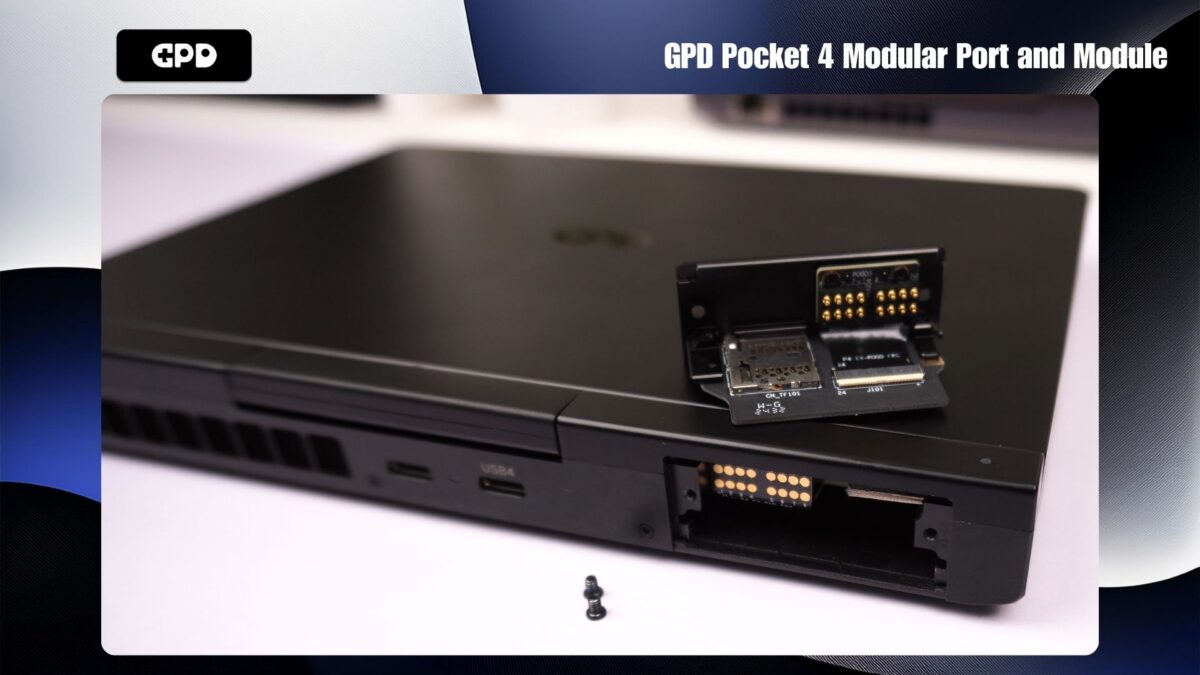
GPD MicroPC 2 vs GPD Pocket 4 Spécifications techniques
| GPD POCKET 4 | GPD MICROPC 2 | |
|---|---|---|
| AFFICHAGE | 8.8″, 144Hz, 2560 × 1600, 10-Point Multi-Touch | 7″ LTPS 1080P 1920×1080, 60Hz, 16:9, 314 PPI, 500 nits |
| UNITÉ CENTRALE | AMD Ryzen 7 8840U 8 Cores / 16 Threads, 5.1 Ghz, 28W AMD Ryzen AI 9 HX 370, 12 Cores / 24 Threads, 5.1Ghz, 25W | Processeur Intel N250, 4 cœurs / 4 fils, 3,8 GHz, 6W – 15W Processeur Intel N300 8 cœurs / 8 fils, 3,8 GHz, 7W |
| GPU | AMD Radeon 780M AMD Radeon 890M | Intel UHD Graphics intégré, 1,25 GHz, 32 unités d’exécution |
| RAM | 32GB ou 64GB LPDDR5x en fonction de la configuration du CPU | 16GB LPDDR5 |
| STOCKAGE | 1 To, 2 To, 4 To de SSD NVMe PCI-E Gen 4.0 en fonction de la configuration du CPU. | 512GB/1TB/2TB/4TB M.2 2280 SSD |
| COMMUNICATIONS | 1x RJ45 Port Ethernet (2.5Gbps) Wi-Fi 6E Bluetooth 5.3 | 1x RJ45 Port Ethernet (2.5Gbps) Wi-Fi 6 (jusqu’à 2402 Mbps) Bluetooth 5.2 (supporte jusqu’à 7 appareils actifs) |
| E/S | 1x USB4 1x USB-C 2x USB A (2.0 et 3.2 Gen 2) 1x HDMI 2.1 1x RJ45 2.5Gbps 1x prise audio 3.5mm 1x port modulaire (avec module lecteur de carte microSD) | 2x USB Type-C 3.2 Gen2 (pleine fonction) 2x USB-A 3.2 Gen2 1x HDMI 2.1 (protocole TMDS, prend en charge 4K@60Hz) 2x DisplayPort 1.4 (via USB-C, prend en charge 4K@60Hz) |
| BATTERIE | Batterie rechargeable 45Wh | 27.5Wh Supporte la dérivation de la batterie |
| DIMENSIONS | 8,14 x 5,6 x 0,87 pouces (20,68 × 14,45 × 2,22 cm) | 6,73 x 4,33 x 0,91 pouces (17,1 x 11,0 x 2,3 cm) |
| POIDS | 785g (1.7 lbs) | 500 grammes (1.10 lbs) |
Identifier le partenaire idéal
Votre profession guidera probablement votre choix entre ces deux excellents 2-en-1.
- Le GPD MicroPC 2 est l’outil idéal si : Vous êtes un technicien, un professionnel de l’industrie ou un ingénieur sur site. Vous avez besoin d’un outil durable, rentable et fiable, où l’intégration de ports essentiels comme Ethernet n’est pas négociable. C’est l’un des ordinateurs portables de petite taille les plus pratiques pour le travail sur le terrain.
- Le GPD Pocket 4 est votre compagnon idéal si : Vous êtes un cadre supérieur, un utilisateur intensif itinérant ou un développeur. Vous exigez le meilleur en termes de performances et de qualité d’affichage et vous appréciez la possibilité de personnaliser votre appareil pour des tâches spécialisées. C’est l’un des ordinateurs portables ultra-portables les plus puissants qui existent.
Bien que ces deux ordinateurs portables légers soient fantastiques, ils répondent à des besoins professionnels différents.
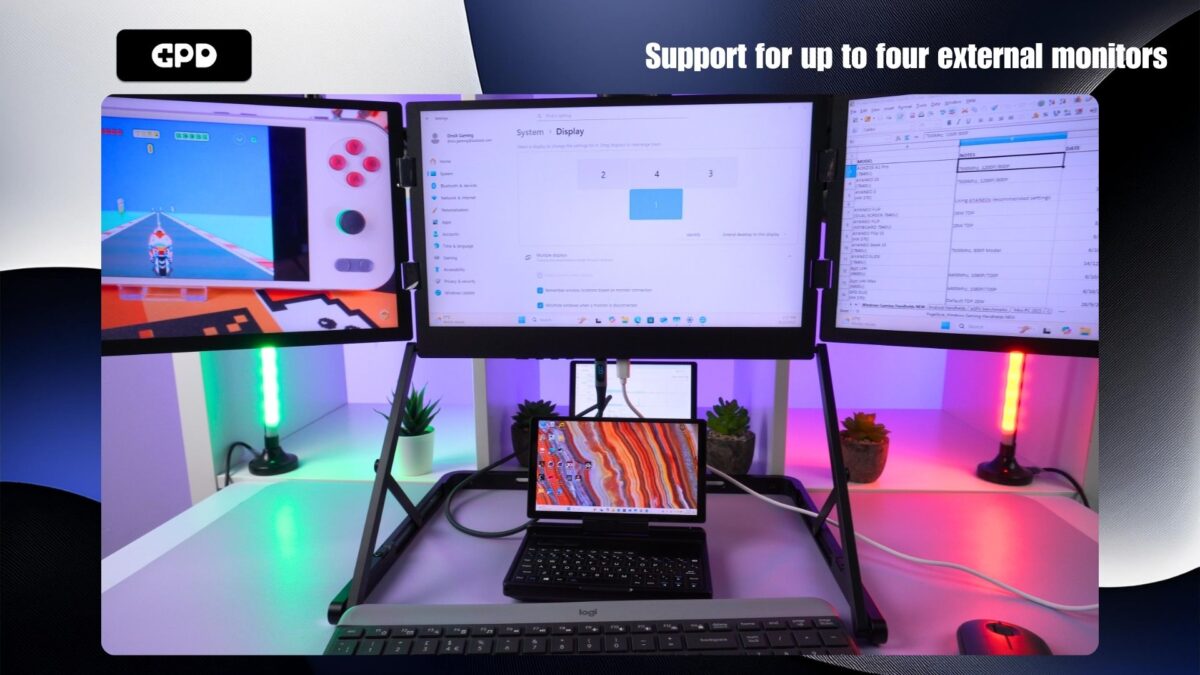
Conclusion
The existence of both the GPD MicroPC 2 and the GPD Pocket 4 is a testament to the maturity of the UMPC market in 2025. The GPD MicroPC 2 vs GPD Pocket 4 choice is not about finding the “better” device, but the one that aligns with your professional identity. One is a rugged, dependable toolkit; a premium, adaptable powerhouse. By evaluating your needs against their unique strengths, you can choose a partner that will not just assist, but elevate your work.
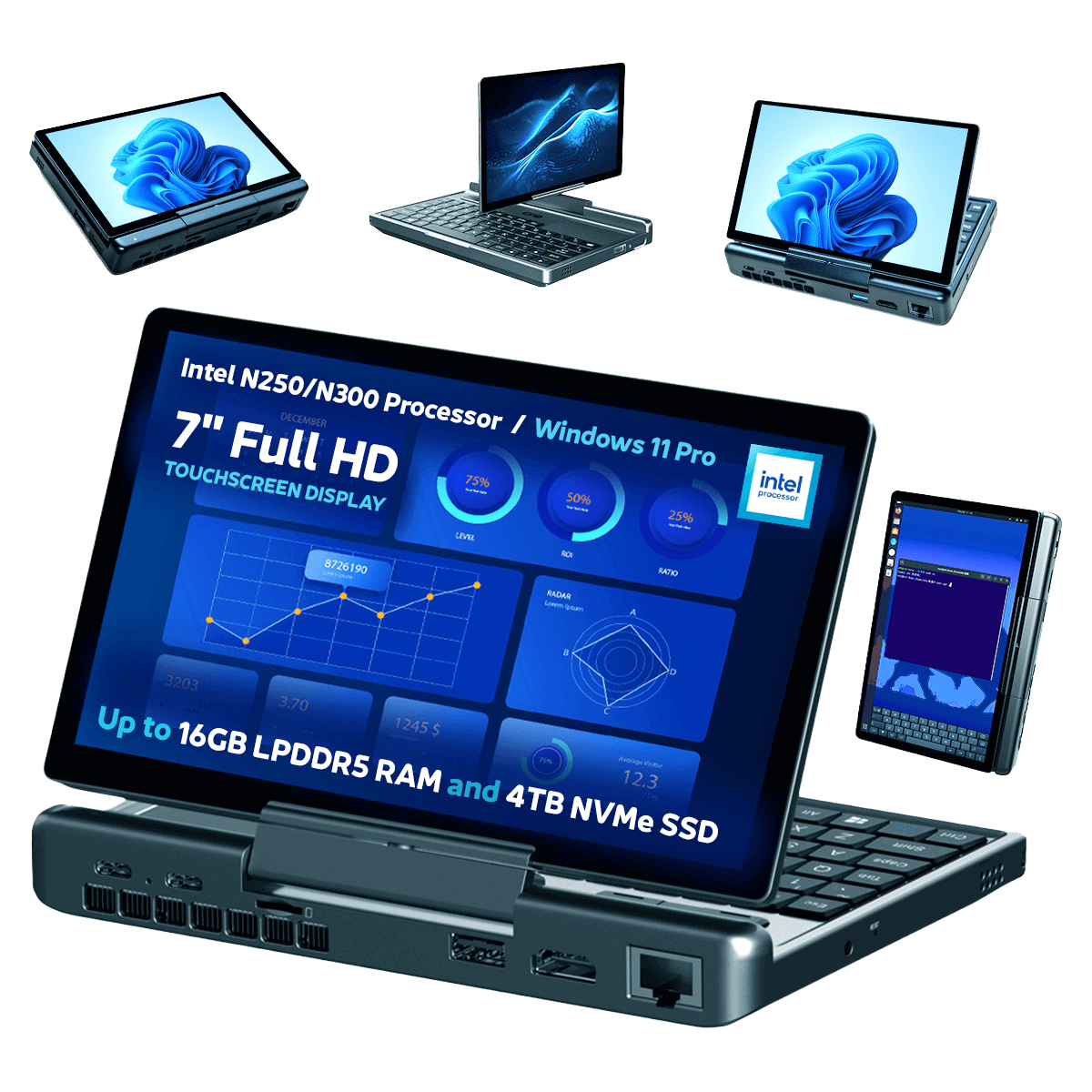
GPD MicroPC 2 UMPC
Which professional philosophy do you align with the rugged, all-in-one readiness of the GPD MicroPC 2, or the premium, high-performance modularity of the GPD Pocket 4? We invite you to share your choice and reasoning in the comments section below!
